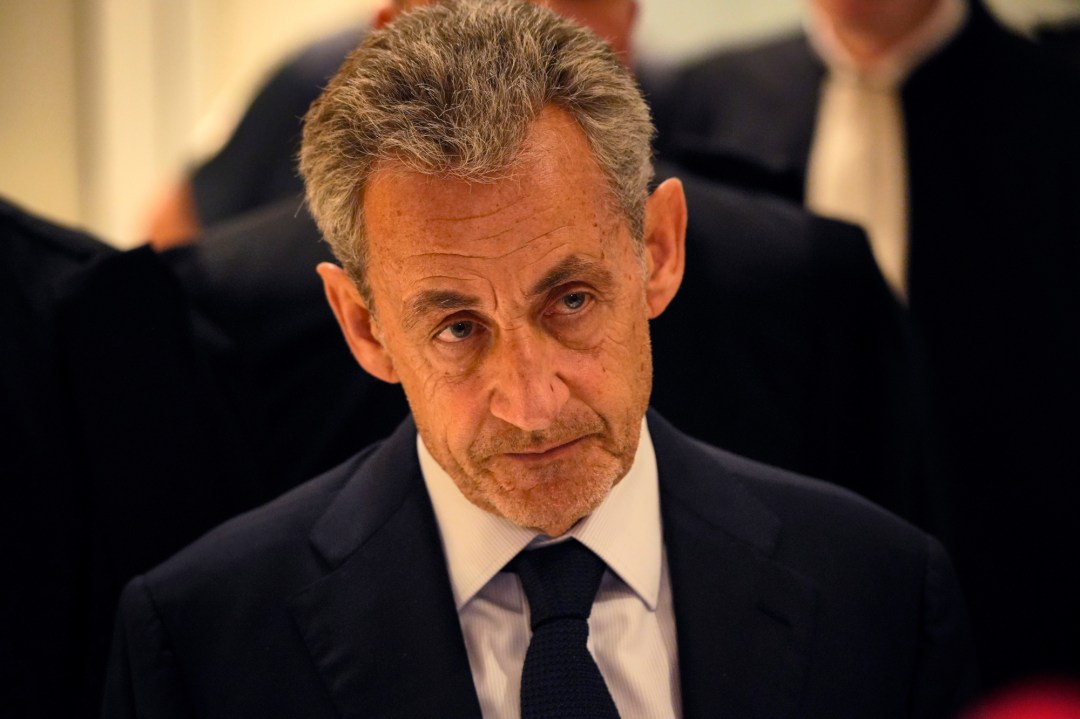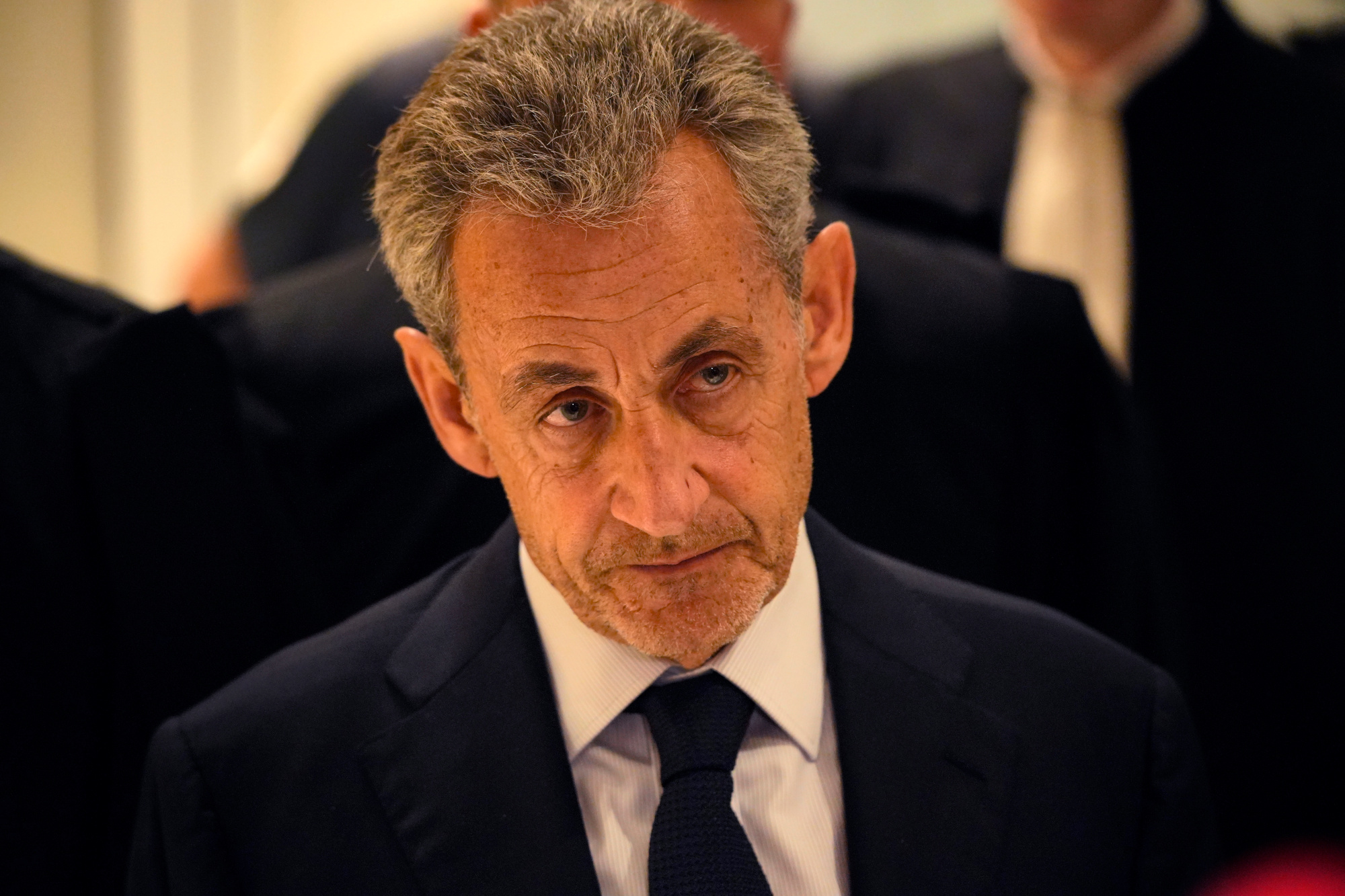A Paris court has sentenced France’s former president Nicolas Sarkozy to five years, three of which must be served behind bars, for criminal conspiracy tied to alleged Libyan funding of his successful 2007 presidential campaign. He’ll be imprisoned within weeks, irrespective of any appeal. The image of a former French president heading to prison is brutal and France is shaken by it.
The law is being used not just to punish, but to shape the field of politics.
What makes today’s decision extraordinary isn’t just the verdict. It’s the court’s choice to immediately enforce its judgment. Appeal or not, Sarkozy will be behind bars. This so-called exécution provisoire is the French legal mechanism that strips an appeal of its usual suspensive effect. Sarkozy remains presumed innocent in law while his appeal is pending yet he’ll still be sent to prison. Normally, appeals delay punishment precisely to avoid such an outcome, except where there is a clear and compelling reason to do otherwise. Here, the judges justified overriding that safeguard by citing the political seriousness of the case. But surely the opposite should apply – when politics is involved, caution should be greater, not less. There’s no risk of flight. Sarkozy is hardly about to slip into hiding. To send him to prison before his appeal is to punish him in advance, a striking departure from judicial practice.
The same measure was applied in March to Marine Le Pen. Convicted of misusing EU funds, she was banned from office for five years. She’s appealed but judges ordered immediate enforcement there too, knocking her out of being able to run for office. She’s since warned of the ‘generalisation’ of the practice, calling it a ‘great danger’ to the presumption of innocence. Two of France’s most prominent right-wing figures have been neutralised by the same non-suspensive mechanism. It’s an awkward coincidence.
As he left court, Sarkozy lashed out. ‘If they absolutely want me to sleep in prison, I will sleep in prison. But with my head held high. I am innocent. This injustice is a scandal’, he declared. He went on: ‘What happened today… is of extreme gravity in regard to the rule of law, and for the trust one can have in the justice system.’ These were not the words of repentance, but of defiance. The former president is convinced he’s being hounded.
Sarkozy was a self-styled hyper-président who dominated every headline, thrust himself into every crisis, and governed at full speed. For a time he was ‘Sarko the American’, admired and mocked in equal measure for his energy, his taste for power politics and his obsession with the lime might. Now that dynamism ends in prison. The man who once strode the Élysée reduced to an inmate. Technically, once in prison he will not be entitled to any special treatment, though it remains to be seen how far the authorities will go in applying this rule to a former head of state.
It’s significant that the judges convicted Sarkozy only of criminal conspiracy. He was acquitted of the other charges of corruption and illegal campaign financing. In plain English, the court didn’t find proof that Libyan money actually financed his campaign, or that he personally took a bribe, but it did find a conspiracy existed around seeking such funds. Sarkozy was convicted of letting his staff organise a mechanism for such payments to be made.
The verdict is far more than Sarkozy’s personal downfall. It throws France’s political class into turmoil, laying bare the country’s bitter divisions. There’s a growing sense that the judiciary itself is now a political actor. The reactions to the judgment reveal a country split down the middle.
On the right, Les Républicains have closed ranks around their former leader. Bruno Retailleau offered ‘support and friendship’ to Sarkozy, Laurent Wauquiez saluted ‘the statesman who gave so much to our country’, and Christian Estrosi declared that ‘no judgment can erase the man of state he was’. Senator Stéphane Le Rudulier went further still, describing ‘a tsunami of shame’ and demanding Macron grant Sarkozy a presidential pardon to repair what he called a ‘senseless decision’ that damages France and its institutions. MEP François-Xavier Bellamy pointed out that the court had not convicted Sarkozy of corruption, diversion of funds, or illegal campaign financing, branding the ruling ‘a political judgment’. For many on the right, the verdict is not justice served but justice abused.
On the left, the mood could not be more different. The delight’s palpable. They’re taking pleasure in a political foe being cut down, a symbol of the right humbled. For the radical left, Sarkozy’s jailing confirms a long-cherished narrative of corruption at the heart of the French establishment.
Macron’s camp look uneasy. A Renaissance deputy told Le Figaro the sentence was ‘disconcerting’, and hardly the way to restore trust between politicians and the public. The centre, which has built its identity on claiming to be the sober alternative to both Sarkozy’s right and Le Pen’s populism, now finds itself caught in the crossfire. If the public comes to believe that justice is being used as a political weapon, Macron’s promise to restore confidence in French institutions will ring hollow.
The evidence underpinning Sarkozy’s conviction remains troublingly thin. The case rests on wiretaps and the shifting testimony of intermediaries such as Ziad Takieddine. No direct evidence of Libyan payment to the campaign was ever produced. Even Takieddine, the fixer at the centre of the affair, later retracted part of his testimony. Yet the court concluded that a ‘pact’ existed. The notion of a pact, a murky understanding rather than a provable transaction, has been enough to send a former president to jail.
The scale of the investigation has been vast. Thirteen years of investigation, fifty days of hearings, and over a hundred witnesses. The resources poured into chasing Sarkozy dwarf anything applied to other politicians. Compare the zeal with which Sarkozy has been pursued to the indifference of the judiciary shown to other politicians, and the imbalance becomes obvious. Sarkozy was singled out for extraordinary treatment.
Sarkozy going to prison and Le Pen barred from running is a double blow to the right. It raises the larger question of who gets to decide the future of French politics. The French judiciary insists it is acting to uphold democracy by punishing corruption and abuse of power. Yet by using the mechanism of immediate enforcement twice in quick succession against the right’s most prominent figures, the judiciary has taken on a role that feels uncomfortably political.
None of this absolves Sarkozy. His presidency was riddled with intrigue, and his appetite for backroom dealing was notorious. But the fury with which the French judiciary has pursued him, and the decision to bend convention in order to put him in prison while he remains legally presumed innocent, leaves a sour aftertaste. The law is being used not just to punish, but to shape the field of politics.
A former president will be in prison, and the leading challenger for the next presidency barred from running. Left-wing magistrates may congratulate themselves on defending the integrity of democracy but to millions of French voters it looks like the opposite. The courts are deciding who they can and cannot choose. In a country where politics has always been bitterly partisan, that suspicion may prove more corrosive than any crime Sarkozy ever committed.









Comments